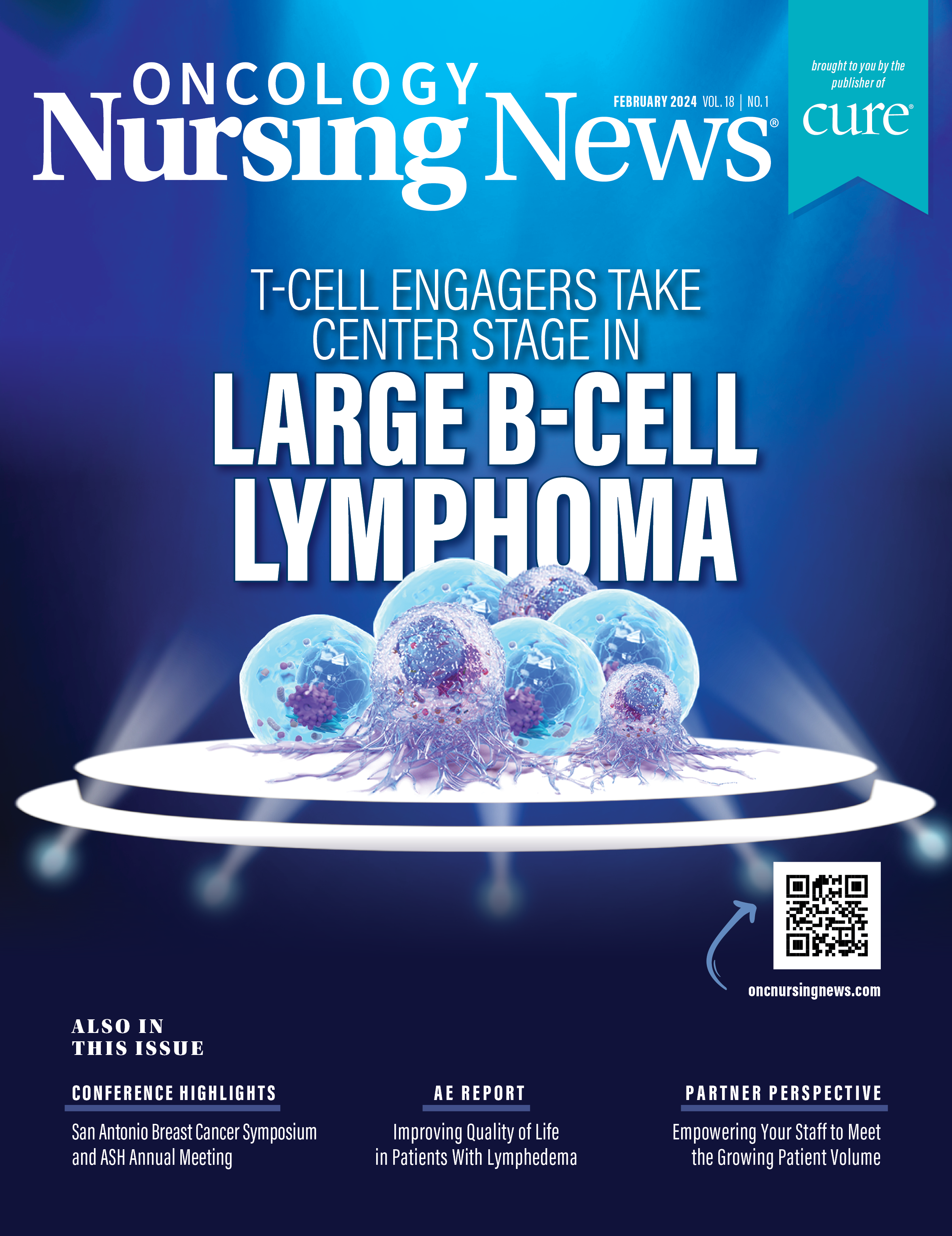Empower Your Clinical Staff to Meet the Growing Patient Volume
Oncology practices can create more access to care by leveraging the use of APPs, empowering nurses to practice at the top of their licensure, utilizing nurse navigators, and planning ahead.
Flat vector illustration portrait nurses and doctors at hospital proud empowered and excited about medical collaboration face healthcare and health expert team united for innovation teamwork and suppo © VIX - stock.adobe.com

Ensuring timely care for patients with cancer is essential to optimizing health outcomes. Prompt diagnosis and initiation of treatment are associated with improved survival rates and increased chances of receiving appropriate therapeutic interventions. Conversely, delays in diagnosis and treatment can exacerbate patient anxiety, compromise quality of life, and result in missed opportunities for early intervention. It is imperative to prioritize timely access to cancer care.
As cancer care evolves, treatment modalities for patients with cancer have expanded beyond traditional chemotherapy to incorporate a multitude of biological and oral therapies, necessitating greater involvement from physicians and nurses in the coordination of care. As a result of these advancements, patients are living longer, which amplifies the need for comprehensive survivorship care. This trend represents a significant milestone for the cancer community and underscores the need for increased access to care as the volume of patients grows.
To effectively manage the rising demand for timely, quality care and the scarcity of health care providers, oncology practices must embrace innovative operational strategies. The US Oncology Network (The Network), which comprises physician-owned, community-based practices supported by McKesson, implements a wide range of strategies to prioritize timely access to care.
Create More Access to Care
Improving access to care is greatly influenced by appropriate utilization of clinical staff. By empowering nurses to practice at the top of their licensure, advanced practice providers (APPs) and physicians can concentrate on evaluation and treatment planning with patients. This collaborative approach enhances efficiency and access.
Leverage the Use of APPs
Through effective utilization of APPs, oncology practices can maximize appointment availability, improve access to care, and reduce waiting time for the first available appointment. APPs play a crucial role in the care team and effectively care for many patients independently.
The Network has prioritized optimizing APP utilization to improve patient access in the community oncology setting by collaborating with oncology practices to open benign hematology clinics at several locations. The concept was initiated by Texas Oncology’s San Antonio region, which had struggled with arranging benign hematology appointments for new patients. These patients faced significant delays because priority was given to patients with urgent needs.
The practice introduced a dedicated benign hematology program, staffed uniquely with APPs. This approach enabled quicker clinic access, immediate workups, and timely initiation of treatment for patients. The initiative was a huge success, with a massive improvement in the time to first available appointment across all patient populations. Wait time for patients in the benign hematology clinic was reduced by 42.6% from August 2022 to August 2023. Having APPs see new patients in the benign hematology clinic ensured appropriate access to care for those patients while also improving access to care for patients with cancer scheduled to see a physician provider.
APPs can also conduct follow-up visits, provide survivorship care, manage patients in palliative care, and handle urgent care visits. This allows physician providers to allocate their time and attention to more complex cases. By optimizing the distribution of responsibilities, health care organizations can ensure patients receive timely and comprehensive care from the most appropriate health care professionals. Inspired by this success, approximately 90% of all clinic sites in Texas Oncology’s San Antonio region have launched their own APP-led benign hematology clinic.
Empower Nurses to Practice at the Top of Their Licensure
Effectively using decision pathways, nursing protocols, and treatment plan parameters will provide nurses with the necessary tools to practice within their scope of practice and reduce the frequency of escalation to providers within the clinic. By adopting this collaborative approach, oncology clinics can ensure that patients receive timely and appropriate care and preserve the provider’s time for focusing on the evaluation and treatment of patients in the clinic.
Utilize Nurse Navigators
Nurse navigators are RNs with oncology-specific clinical education who facilitate informed decision-making and timely access to quality care throughout all phases of treatment.1 A robust nurse navigation process helps ensure a clear trajectory of care. That means patients receive the right care at the right time at the right venue, across their entire treatment journey. In addition, this allows physicians to have more time to focus on patients who need a physician’s expertise.
Nurse navigation prior to the first appointment is essential. For instance, when a patient has a suspicious scan, the navigator can guide the patient to the appropriate first stop in the treatment path, whether that is a surgeon, an oncologist, or other specialist. This often eliminates unnecessary consultations and tests. Navigators can also advocate for the appropriate duration of time before a patient is seen by a provider, accelerating access to the right care while reducing the period of uncertainty between a patient’s abnormal scan to their first appointment.
Additional Ways to Increase Patient Access
Although nurses and APPs play a major role in increasing access to care, other strategies are being employed across The Network to help meet the growing demand for services. For instance, many practices are adding oncology-focused pharmacists to the care team. These highly knowledgeable professionals play an important role in care delivery, either remotely or onsite. They offer many benefits to both the patient and the provider, including:
- Improving patient safety and quality measures through collaboration between onsite pharmacy staff and dedicated remote pharmacists for clinical order review
- McKesson’s Clinical Review Team of 10 remote clinical pharmacists intervened with the onsite care team on 71% of orders reviewed over the past year through dose rounding, product selection, supportive care recommendations, and clinical and quality modifications to both oral and intravenous therapy.
- Coordinating care to ensure chemotherapy scheduling is appropriate and adjusted if needed
- Dosing and monitoring patients on oral therapies, freeing physicians from these tasks
- Reducing provider interruptions for insurance-based product modifications, drug information consultations, and research into difficult questions so physicians can provide accurate clinical information in an expedited fashion
- A recent McKesson survey found 428 provider hours were saved over the previous calendar year by pharmacists handling these time-consuming tasks.
All these contributions by pharmacists can improve—rather than delay— time to treatment initiation while helping to ensure the patient receives the appropriate care.
Additionally, practices are utilizing telehealth, a technology that came to the forefront during the COVID-19 pandemic. Many practices have become very proficient in its use and have found it quite practical for survivorship and follow-up care, as well as for reaching patients in rural areas who face difficulties traveling to the clinic. Practices are also increasing access to care by providing financial counselors who help patients find resources to fund treatment.
Plan Ahead: Demand Will Only Increase
Practices must prepare for the growing need for their services, which is unlikely to subside in the near future. Planning and developing operational strategies to increase access to care will enable them to meet the increasing demand for cancer care in their community while keeping quality patient care their No. 1 priority.
Reference
- Role of the oncology nurse navigator throughout the cancer trajectory. Oncology Nursing Society. Accessed October 10, 2023. https://www.ons.org/make-difference/advocacy-and-policy/position-statements/ONN




